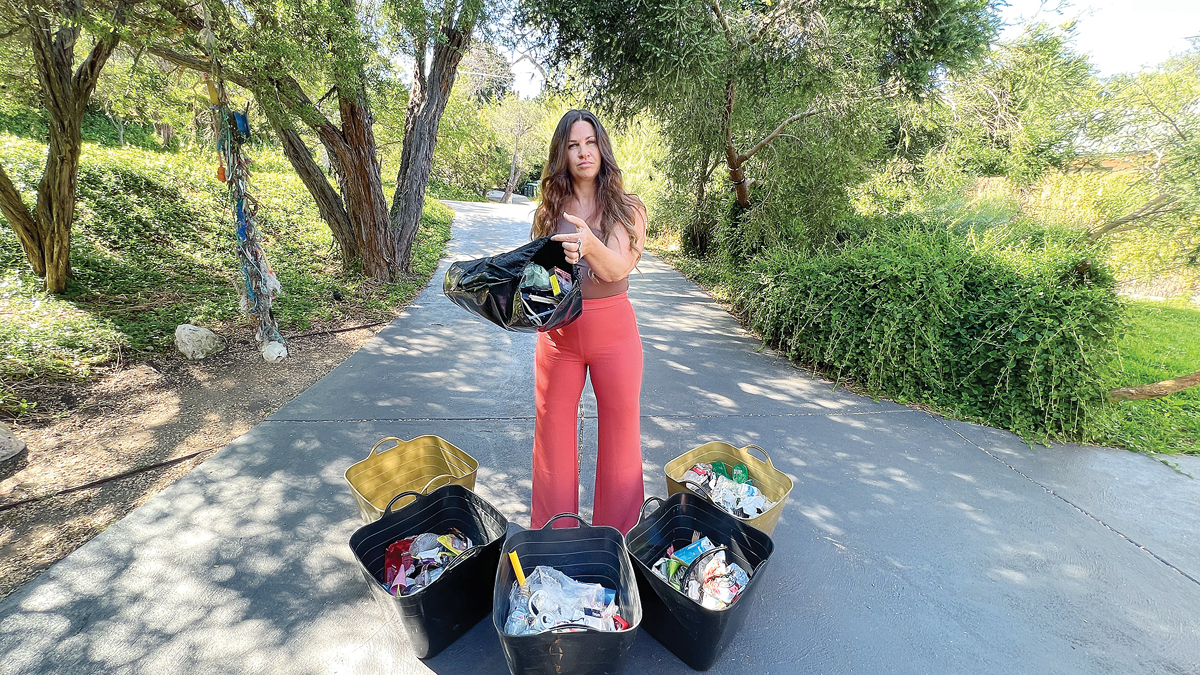THE summer influx of visitors to the Mornington Peninsula and the amount of rubbish being left on beaches and roadsides has prompted calls for a better tourism management planning and a fresh approach to litter control.
Paid and timed parking is likely to be introduced to prevent beachgoers hogging parks in hot spot shopping and residential areas.
Community leaders have for years been demanding the council take proactive action on limiting the negative impacts of tourism, including rubbish, jet ski misbehaviour, and “dangerous” parking near beaches.
Michelle Cheers, of Rye Community Group Alliance, said it was distressing to see the increasing amounts of littering on beaches this summer and the large number of jet skis “crowding” peninsula beaches.
Cheers said there had been a strong community push for a tourism management plan on the peninsula that would provide strategies for better and easier rubbish disposal and management of visitor numbers.
“The council has long refused to bring in a better tourism management plan, because that way they are not accountable … that way they can just say [such things as] ‘oh, we did put extra bins out’,” she said.
“I went to the beach at Rye the other day and apart from rubbish everywhere there were 65 jet skis – that’s unmanageable and dangerous.
“We’ve had petitions with 6000 signatures to ban jet skis from some of our beaches, but nothing gets done.”
Jet ski riders are banned from weaving, making sharp turns and doing donuts in zones where the speed limit is five knots, under rules introduced in 2019, but enforcement difficulties means many riders break the law.
In one positive move, in December the council introduced a watercraft removal program, after increasing numbers of jet skis were being stored on Crown land foreshore reserves. A statement from council says the program would result in “stronger, healthier dune systems that are more resilient to the impacts of climate change”.
But Cheers says the council’s ongoing and overarching focus was the “supposed” financial benefit of tourism, while ignoring the social and environmental costs.
“They go on about the money tourists bring in but at what benefit to ratepayers and at what cost?” she said.
Environmental advocate and former citizen of the year, Josie Jones OAM, said the amount of litter left behind on beaches this summer was “extremely concerning”.
Jones spearheaded a “beach hand bin” pilot program for peninsula beaches last summer, with data showing the bins resulted in a 71.5 per cent reduction in small litter, which makes up for 85 per cent of litter collected.
The next trial of the beach hand bins will start in late January on the Great Barrier Reef to gather another data set and see their effectiveness on remote beaches such as Mon Repos, a turtle nesting beach.
Jones said the council had a great opportunity to connect with the community and use available data to come up with effective litter-prevention strategies,
“I feel sad, I wish I had greater support from council to work together and implement solutions ongoing, such as the beach hand bins we had last year,” she said.
Jones said simple solutions to litter prevention were needed to make it easier for people to discard of rubbish responsibly.
“I’d like to see greater emphasis on what is acceptable and communicate this via signs at the end of the freeway so everyone coming to the peninsula understands the awareness by community and the requirement as a visitor to be responsible with litter, and the local laws,” she said.
“The council need to be consistent with their delivery of waste management and the environmental ethos of the peninsula, using council vehicles to reiterate the ethos and value of our local environment.”
Council’s climate change and sustainability manager, Melissa Burrage, said education, infrastructure and monitoring all played an important part in litter prevention on the peninsula.
“Summer is a busy time … and lots of people can unfortunately mean lots of rubbish. We’ve put in extra measures over summer to help people dispose of litter responsibly,” she said.
“We have placed more bins in the busiest foreshore areas, increased the collection and servicing of these areas to up to three times a day and have a team of litter prevention officers patrolling across the peninsula.
“We are also trialling QR codes on bins in busy foreshore areas so people can quickly and easily report an overflowing bin.”
The mayor Steve Holland said the shire had “very few” mechanisms to raise revenue from tourists.
“We are exploring some options because, right now, our residents and ratepayers are footing the bill for tourism infrastructure and services which is quite unfair,” he said.
“Litter is always a problem at this time of year and unfortunately it seems some people were never taught to clean up after themselves.”
First published in the Southern Peninsula News – 10 January 2023




